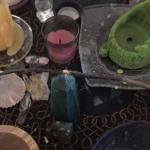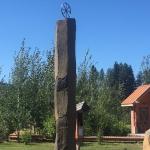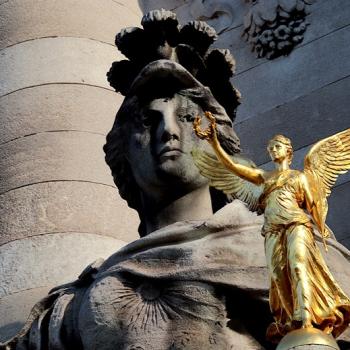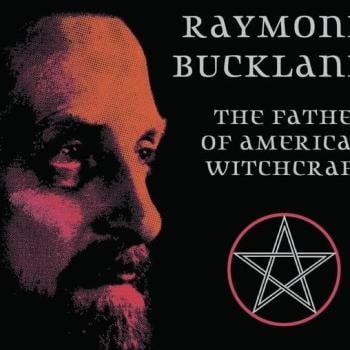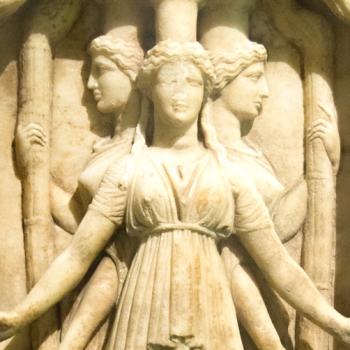It was not what I expected to read on Facebook, let alone comment about it on this blog, but I can’t get this comment out of my head: “I think Catholics Are Witches.” When I see such comments I generally assume that they’re being made by reactionary Evangelicals who seem to hate everything, but this time it was being made by one of our own. We had another Witch saying that Catholics were Witches.
Of course, Catholics are Catholics, and maybe even then they think of themselves as Christians first and Catholics second. There are certainly some Catholics who do Witchy-things, but that doesn’t make them Witches. There might even be some Catholics who identify as Witches, but that’s for those Catholic-Witches to decide, not you or I, or anyone else in the Catholic or Witch communities.
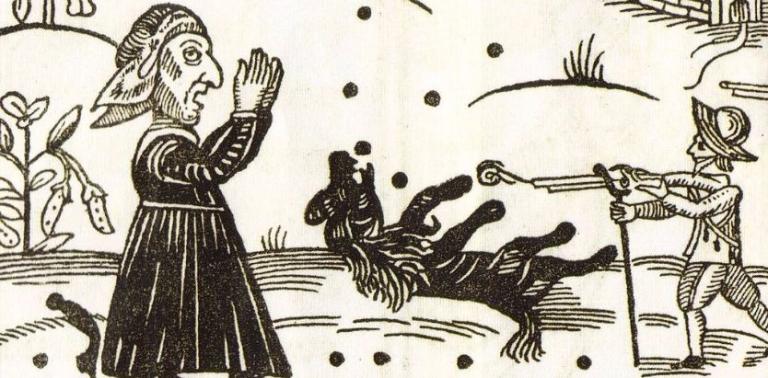
A person becomes a Witch when they say “I am a Witch.” A person does not become a Witch when someone else decides that they are a Witch. A Witch is a title that is chosen by the individual, it’s not one given arbitrarily. I understand why someone might look at certain Catholic practices and practitioners and think that someone praying on their rosary is a Witch, but the title of Witch isn’t ours to bestow in such circumstances.
Just like it’s not my place to tell someone “you aren’t a Witch” it’s not my place to decide who is a Witch either. Witch is a very complicated word, and has been used a variety of different ways over the last 500 years. We’ve seen what happens when someone else decides just who is a Witch, it’s something today we call the Burning Times.
Some practitioners of Witchcraft often see Witchcraft in places where it doesn’t exist, or choose to posthumously bestow the title of Witch upon a person or group of individuals. Many Modern Witches have been inspired and influenced by practitioners of Cunningcraft, but the vast majority of the individuals who practiced that craft did not think of themselves as Witches. They may have been called Witches by their neighbors, but that didn’t make them Witches. (I have been called many things by my neighbors over the years, not all of them are accurate.)
Certainly we should find inspiration in the past, but just because we are inspired by certain practices or individuals, they don’t suddenly turn into Witches or Witchcraft. I love Marie Laveau, but she was a Voodoo Priestess and a practicing Catholic. It’s likely that some of her more ignorant neighbors called her a Witch, but she most likely thought of herself as a Catholic and a Voodoo Priestess. It’s not my place to call her a Witch and create an identity and an association she most likely would not want.
There’s a lot of stuff from the past that’s certainly witchy and fits easily within the myriad traditions of Modern Witchcraft that are a part of today’s world, and we should use those things. They become a part of our Craft when we use and adapt them to fit to our needs. Let’s find inspiration in magickal traditions along with history and myth, but let’s not retroactively decided they are part of a 1000 year old tradition of Witchcraft.
In a similar vein I’ve seen several people upset by Ronald Hutton’s latest book The Witch: A History of Fear, from Ancient Times to the Present (due out here in the States on September 5). Most of the critical folks have been linking to a review of the book in The Spectator entitled Magic mushrooms and the roots of witchcraft.
(The review linked to above is problematic for several reasons, but mostly because it regurgitates theories that fell out of fashion in the 1970’s. Those ideas faded from scholarly circles not due to some sort of bias, but because they had no evidence to support them. Also, if I was going to criticize a scholarly book by a preeminent scholar I’d probably use some footnotes, something the author of the article decided was a waste of time.)
Why are people upset by Hutton’s latest book? Probably for the same reason a lot of people were upset by 1999’s Triumph of the Moon, it doesn’t say what they want it to say. It would be cool if Modern Witchcraft was directly related to cults that grew up around magick mushrooms and sexual encounters in the astral plane, but that’s just not the case.
Just because I want the history of Witchcraft to be a certain way doesn’t make it so. And even if there was a secret society in Europe that indulged in magick mushrooms, they still could have been Christians, or Jews, or Muslims. They wouldn’t have been Witches unless they claimed to have been Witches, which seems like it would have been a bad idea since a lot of people were being hung and burned as Witches at the time.
Some of this goes back to one of my biggest pet peeves, the “You aren’t a Witch” arguments, generally directed at Wiccans. As a Wiccan-Witch of course I identify as a Witch, I’m a Witch of a certain stripe, but I’m a Witch none the less. Do I need some sort of card to prove it or something?
Let’s let people decide for themselves if they are Witches and not make the decision for them. It’s up to the individual to decide if they are a Witch, and if they believe they are, then and only then are they a Witch.


